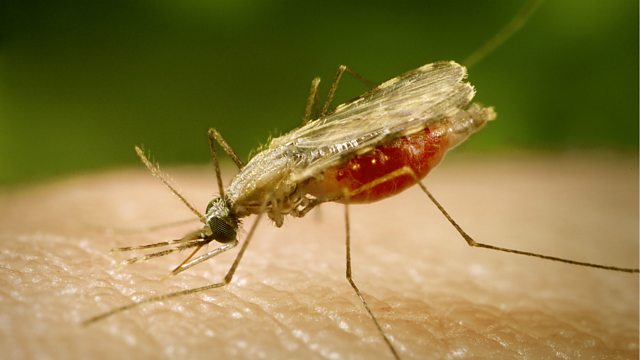
A Path to Malaria Eradication
Zanzibar has reduced malaria infections by over 95 per cent, could this provide a model for the rest of Africa?
Through a country wide programme involving education, drug treatment and the mass distribution of bednets and insecticides, Zambia has reduced malaria infections by 96 percent. However getting down to zero is proving elusive. We look at how mosquitos have adapted to thwart efforts and how visitors to Zambia might now be part of the problem.
And we learn how new information from the human genome is challenging widely held views on older mothers. The study shows that genetic mutations are more likely to be passed on from older fathers. The researchers say such mutations are not necessarily harmful, but they do increase with the age of the father.
We also look to Mexican salamanders for some genetic clues on regeneration, could understanding how they can grow back limbs and digits help human neuroscience?
When CrowdScience listener, Grady, crashed violently on his motorbike in the desert, he thought he was going to die. Years later he still can’t remember the dramatic seconds just before the impact. Where did the memory disappear to? Did the hard hit to the head knock his memories out or are they still in his brain somewhere? CrowdScience turns to brain science to find out if those last few seconds are lost for good or if the brain tells a different story.
(Image: A single mosquito, Credit: Getty Images)
Last on
More episodes
Previous
Broadcasts
- Sun 27 Jan 2019 15:06GMT����ý World Service Americas and the Caribbean
- Sun 27 Jan 2019 16:06GMT����ý World Service News Internet
Podcast
-
![]()
Unexpected Elements
The news you know, the science you don't

